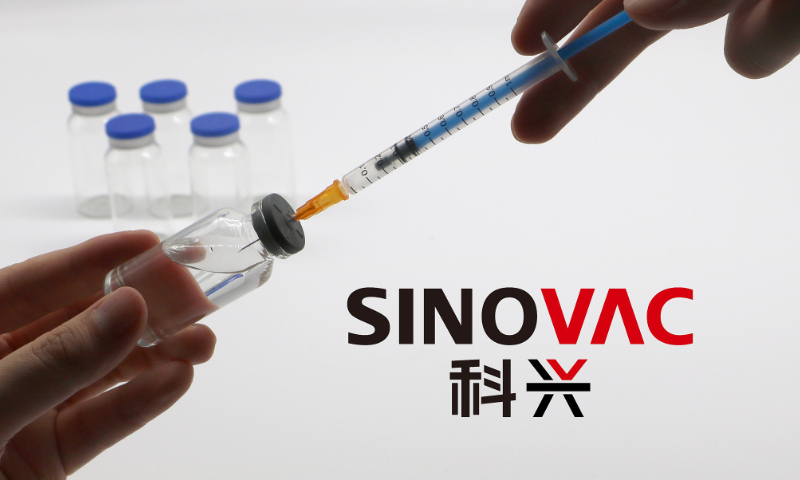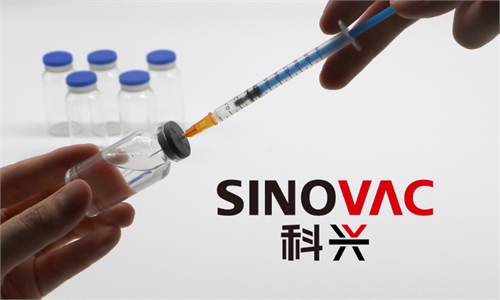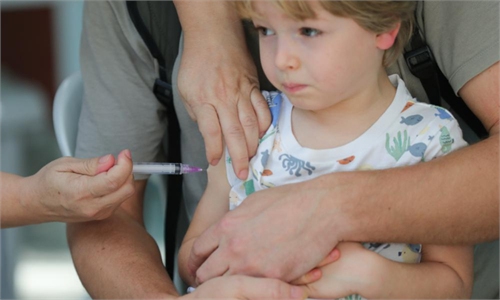WHO extends coverage of SINOVAC's COVID-19 vaccine for 3-year-olds as Chinese experts discuss boosters for juveniles

Sinovac Photo: VCG
The World Health Organization (WHO) has expanded the use of Chinese manufacturer SINOVAC Biotech's COVID-19 vaccine for children aged 3-17, making it the first and only vaccine on the WHO's Emergency Use Listing (EUL) that has been recommended for children aged 3-4, the Global Times learned from the company on Wednesday.
SINOVAC's inactivated COVID-19 vaccine, CoronaVac, was included in the WHO EUL on June 1, 2021, recommended for people aged 18 and above. The vaccine has been approved for use by 60 countries, regions and international organizations and approved for use in juveniles in 14 of the 60 places, according to a statement SINOVAC sent to the Global Times. A total of 2.9 billion doses of the vaccine have been administered globally, the statement noted.
According to global clinical research and real-world data, CoronaVac showed sound safety in children and juveniles aged 6 months and above, the company said.
CoronaVac is one of the three inactivated vaccines that have been approved in China for children aged 3-17; the other two are developed separately by Beijing Institute of Biological Products and the Wuhan Institute of Biological Products, both under the state-owned Sinopharm group. China has not approved vaccines based on technologies other than inactivated methods for the group.
China kicked off vaccination for juveniles in July 2021. As COVID-19 cases are surging in some major cities in the country, concerns are increasing among Chinese parents over whether their children should get booster shots to enhance protection against the rapidly spreading Omicron variant.
The Global Times learned from Chinese vaccine producers that they are conducting clinical trials on the safety and efficacy of booster shots among juveniles and have submitted the data to related authorities.
But opinions of experts reached by Global Times differ over whether it is time to roll out booster shots for juveniles.
Tao Lina, a Shanghai-based expert in epidemic prevention and control systems, suggested offering booster shots to those in the 3-17 group as soon as possible amid the surging epidemic.
It would be better to provide vaccines based on innovative technologies like inhaled vaccines and the recombinant protein vaccine as boosters for juveniles who have previously been given inactivated shots, as sequential vaccination would enhance antibodies to a higher level over those made by the same inactivated method, Tao said.
A research team led by Lu Hongzhou, head of the Third People's Hospital of Shenzhen, also recommended boosters for the group as their clinical study showed that vaccines could effectively prevent symptoms and shorten the time for children to test negative for COVID-19 after being infected.
Zhuang Shilihe, a Guangzhou-based expert, told the Global Times that the rate of severe disease and death among juveniles caused by COVID-19 is much lower compared with the elderly group, so the current emergency task for the country is still to promote booster shots among the elderly.
According to data released by the government of China's Hong Kong Special Administrative Region on November 16, the fatality of COVID-19 among people aged between 3-11 who had received two shots of COVID-19 vaccines stayed at 0.01 percent after accepting a third one; the rate decreased from 0.03 percent to 0.01 percent among those aged 13-19. Meanwhile, the fatality rate among people aged 60-69 vaccinated with two shots decreased from about 1.7 percent to 0.5 percent after a third shot.


